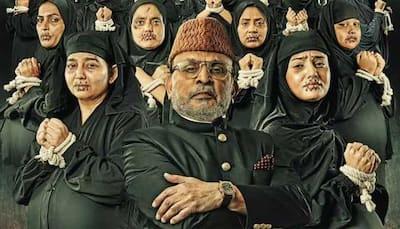
In a significant legal development on Friday, the Supreme Court of India declined to entertain a writ petition that sought the revocation of the Central Board of Film Certification (CBFC) certification granted to the much-debated film ‘Hamare Baarah’, directed by Kamal Chandra and featuring Annu Kapoor.
A vacation bench comprising Justice Vikram Nath and Justice S.V.N. Bhatti presided over the hearing. The bench expressed reluctance to examine the plea on its merits, especially since the petition had been filed directly before the apex court. “You should challenge the Bombay High Court order. The movie has been screened and the Bombay judges have viewed it. They have directed the expunging of certain scenes, shots, and dialogues. If you seek leave and file an appeal, it would be appropriate for this court to examine the matter,” Justice Nath advised the petitioner’s counsel.
Faced with the Supreme Court’s evident disinclination to entertain the writ petition, the petitioner’s lawyer sought permission to withdraw the plea. Consequently, the petition was dismissed as withdrawn, with the liberty to file a special leave petition against the Bombay High Court’s order that permitted the film’s release on June 21 after specific modifications.
The controversy surrounding ‘Hamare Baarah’ found new momentum when the Bombay High Court, in an order passed on Wednesday, allowed the release of the contentious film, albeit with specific alterations to its content that had been deemed objectionable. Filed under Article 32 of the Indian Constitution, the petition claimed the film portrayed Muslim women as having no independent rights and held the Muslim community responsible for India’s burgeoning population.
“The director and producers of the film have targeted a specific community and depicted Muslim women as slaves and chattels, who are exploited by male members. Verse 223 of the Surah Baqarah Chapter 2 of the Holy Quran has been misinterpreted and wrongfully projected as ordaining Muslim males to treat Muslim females as their chattels, allowing them to exploit them in any manner,” reads the plea filed through advocate Syed Mehdi Imam.
.
Bringing together notable actors like Ashwini Kalsekar, Rahul Bagga, Manoj Joshi, Aditi Bhatpahri, Paritosh Tiwari, Parth Samthaan, and Shaan Saxena, ‘Hamare Baarah’ generated considerable public interest and apprehension. The film’s trailer, which sparked immense debate, was particularly alarming to a section of Muslim intellectuals who raised stern objections. They charged that the film grossly misinterpreted Islamic teachings and sought to malign both the religion and the Muslim community at large.
Despite these accusations and the uproar it caused, the Supreme Court maintained that it was not the appropriate forum for initial adjudication on the merits of the CBFC certification. Emphasizing procedural propriety, the apex court directed the petitioner to challenge the lower court’s order instead.
The Bombay High Court’s earlier ruling came under scrutiny for its attempt to balance freedom of expression with societal sensitivities. Modifications included the removal of particular scenes, dialogues, and shots that the court deemed offensive. Despite this, the petitioners held that the broader narrative of the movie remained prejudicial and defamatory.
The film’s director, Kamal Chandra, and the producers have consistently defended their work, asserting that ‘Hamare Baarah’ aims to highlight social issues within a narrative framework that is both engaging and thought-provoking. They argue that any interpretation suggesting an intent to malign a community is misplaced and arises from a subjective reading of the film’s content.
Beyond the courtroom, the debate over ‘Hamare Baarah’ has sparked broader discussions about the role of cinema in society, especially concerning sensitive topics such as religious interpretation and community portrayal. For some, the film is a necessary exposé that encourages dialogue on critical societal issues. For others, it represents a dangerous narrative that risks deepening communal divides.
What remains clear is that the judicial process concerning controversial films such as ‘Hamare Baarah’ highlights the ongoing struggle to reconcile freedom of expression with the need for communal harmony. As the case progresses through the legal system, it is likely to set precedents that will influence future disputes involving cinematic portrayals and community sentiments.












